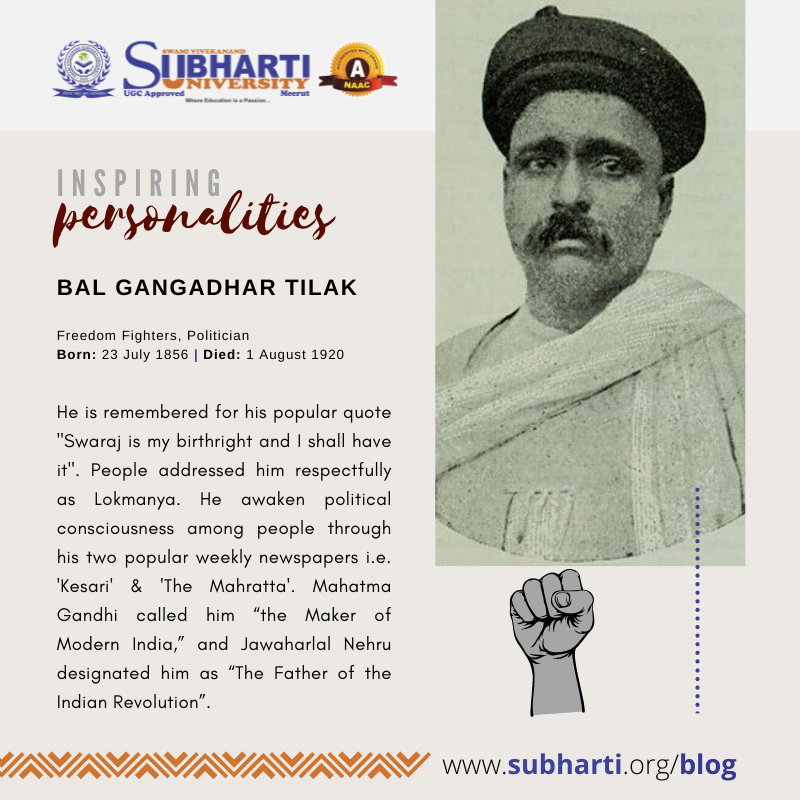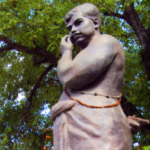Born: 23rd July 1856
Died: 1st August 1920
One of the dedicated freedom fighters of India, Shri Bal Gangadhar Tilak or Lokmanya Tilak was born on 23rd July 1856, at Ratnagiri, Maharashtra. He is remembered for his popular quote “Swaraj is my birthright and I shall have it”. He was respectfully addressed as Lokmanya, which means “Beloved of the people”.Tilak was educated at Deccan College in Poona, and after completing his graduation in Mathematics & Sanskrit, he began his career as a teacher in a private school, Pune, and want to become a journalist.

That school became the basis for his political career. He was always very vocal in criticizing the Western education system as he wanted to set up the Deccan Education Society for Indian youth. He began the task of awakening the political consciousness of the people through two weekly newspapers that were owned and edited by him i.e. ‘Kesari’ (published in Marathi) and ‘The Mahratta’ (published in English) their pages actively spread the inspiration of freedom. Tilak joined the Indian National Congress (INC) and aimed at ‘Swaraj’. In 1907, after Tilak’s clash with the party’s moderates, the Congress Party split into two factions. By taking the advantage of separation the British authorities charged him for sedition and encouraging terrorism and transferred him to Mandalay, Burma (Myanmar), where he served a six-year sentence in the prison from 1908 to 1914. Bal Gangadhar Tilak tirelessly worked to make the country free from British rule. Being a part of the Lal-Bal-Pal (Lala Lajpat Rai, Bal Gangadhar Tilak, and Bipin Chandra Pal) trio, the British colonial rulers described him as the ‘father of the Indian unrest”. In 1916 after his release he re-joined the Indian National Congress and helped to establish the “All India Home Rule League” during 1916-1918. Although Tilak was not in favor of Mahatma Gandhi’s strategy of nonviolent protest. During his time as a writer, he wrote many books on Indian culture, history, etc. Tilak passed away on 1st August 1920. In honor, Mahatma Gandhi called him “the Maker of Modern India,” and Jawaharlal Nehru (independent India’s first Prime Minister) designated him as “The Father of the Indian Revolution”.



